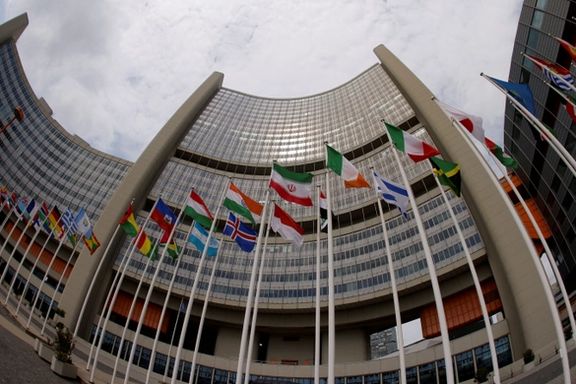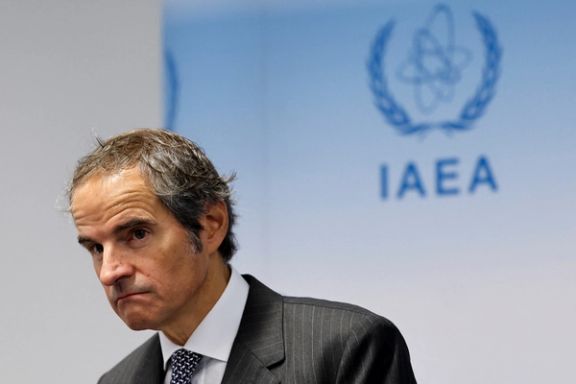UN Watchdog Fails To Censure Iran’s Nuclear Advances Again

The UN nuclear watchdog claims Iran is not fulfilling commitments and there is no progress ahead, yet no resolution was issued at the body’s key summit.

The UN nuclear watchdog claims Iran is not fulfilling commitments and there is no progress ahead, yet no resolution was issued at the body’s key summit.
Washington and its European allies did not move to censure Iran at the critical meeting of the International Atomic Energy Agency (IAEA) in Vienna from November 20 to 24 while Tehran is enriching uranium at levels with no non-military use and is stockpiling more of it.
After the previous round of the 35-nation IAEA Board of Governors meeting in September, the Islamic Republic ejected one-third of the inspectors with expertise in uranium enrichment. And each time the board issued resolutions as the IAEA decided it is “essential and urgent” that Iran act to fulfil its legal obligations and clarify all outstanding safeguards issues without delay, Iran responded by augmenting activities.
Iran has steadily leveled up its nuclear game since 2021, developing more plants, enriching more uranium at higher levels, stockpiling more, and simultaneously eroding IAEA monitoring. The latest IAEA report said Iran has enough uranium enriched to up to 60% for three atom bombs and is still stonewalling the agency on key issues, with IAEA Director General Rafael Grossi highlighting that “significant safeguards issues remain outstanding" in Iran’s nuclear program. Experts say analyzing IAEA recent reports proves that Iran now has enough enriched uranium to produce weapons-grade uranium (WGU) for one nuclear weapon in as little as seven days and up to 12 nuclear weapons in five months.

"If Iran fails to implement the essential and urgent actions contained in the November 2022 Resolution and the 4th March Joint Statement in full, the Board will have to be prepared to take further action in support of the (IAEA) Secretariat to hold Iran accountable in the future, including the possibility of a resolution," Britain, France, Germany -- the so-called E3 -- and the US warned in September. Since the last resolution last November, the West has refrained from formally condemning Tehran's progress or setting a deadline for Iran to come into compliance with a five-year IAEA investigation into Iran's violations of the Nuclear Non-Proliferation Treaty (NPT).
Andrea Stricker, a research fellow at the Foundation for Defense of Democracies (FDD), has called on the West to push back Iran’s nuclear advances, asking, “How many inspectors must Iran eject and how many nuclear weapons’ worth of uranium will Tehran amass before the West stands up to the regime? The current approach ensures Iran can stroll to nuclear weapons at a time of its choosing.”
Pointing out Iran’s destabilizing activities, Anthony Ruggiero, Senior Director of FDD’s Nonproliferation Program said, “Tehran funds and supports proxies attacking Israel and is on the threshold of nuclear weapons. President Biden should call for a special IAEA board meeting to censure Iran and support the IAEA’s director general. Washington must fully implement US sanctions and respond to Tehran’s proxies attacking US troops by targeting Iranian personnel responsible for the attacks.”
There is bipartisan consensus at US Congress that a nuclear Iran is unacceptable, but no measure did manage to slow down Tehran’s nuclear drive.
It seems that some of world leaders have come to terms with a nuclear Iran and its hypothetical atomic bombs, and apparently a dozen more states that are at the verge of going nuclear. During the World Nuclear Exhibition in Paris on Tuesday, Grossi said, "We already have 10 countries which have entered the decision phase (to build nuclear power plants) and 17 others which are in the evaluation process. There will be a dozen or 13 (new) nuclear countries within a few years.” Producing electricity also gave birth to Iran’s nuclear program.